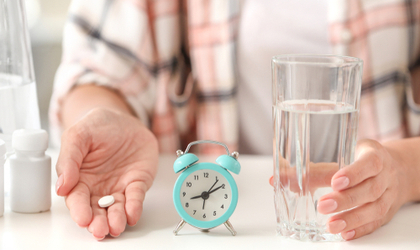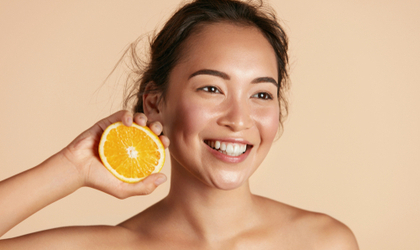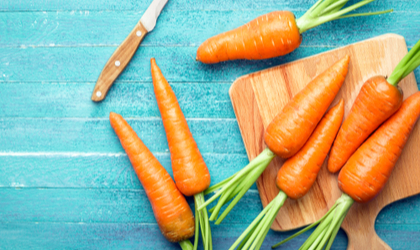
A large, complex molecule found in almost every tissue – organs, muscles, bones, skin, hair, and nails – protein is essential to the basic functioning of the human body. No wonder it’s called the building block of all life. In this article, we take a closer look at the benefits of protein.
Why do we need protein?
Protein has long been associated with shake-guzzling bodybuilders who want to increase muscle mass. However, it serves as far more than just a bulking agent. Protein comprises smaller units called amino acids, which – yes – help repair and build muscles, but also provide energy, as well as produce hormones and enzymes.
Eating a diet rich in protein supports muscle growth and recovery, hair and nail health, metabolic function, and even healthy ageing.
Not getting enough protein, conversely, may lead to breakouts, hair thinning, and weight loss as muscle mass diminishes.
You can find out more about protein here.
Protein for muscle recovery?
Protein is often discussed in the context of exercise – and it’s no surprise, really. Your muscles are largely comprised of protein. During exercise, some of the proteins in your muscles are damaged and broken down [1]. The rate at which this happens depends on the intensity of your workout.
Getting enough dietary protein after exercise gives your body the amino acids it needs to repair your muscles and prepare you for the next workout.
Protein to build muscle
Aside from muscle recovery, we also need protein to build muscle. To increase muscle mass, your body must create more muscle protein than it breaks down. If you want to build muscle, therefore, protein needs to be an important pillar of your diet, as well as your post-workout nutrition. Empirical data suggests a higher protein intake can help increase muscle and strength [2].
Timing your protein intake is vital if you’re aiming to build muscle. Ideally, you want to consume a high-quality source of protein within 30-minutes of your workout to optimise the regeneration process. Within that window, a serving of protein-packed recovery nutrition activates the body’s repair mode and kick-starts muscle growth.
Many people find that protein supplements, like shakes and bars, are a convenient and helpful way to build muscle.
How much protein should I eat to gain muscle?
Most recent studies suggest you need between 1.8g and 2.2g of protein per kilogram of lean body mass to build muscle or even maintain the muscle you already have [3].
Protein in hair and nails
Keratin is the structural protein that makes up hair and nails. As such, low dietary intake of protein can lead to hair thinning, hair loss, and brittle nails. For instance, acute telogen effluvium (TE), a temporary form of hair loss, is a well-known symptom of sudden weight loss or diminished protein intake [4].
Chemical exposure as well as exposure to natural elements, such as heat, wind, and sun can also break down the protein in human hair and nails. Since keratin is widely found in these tissues, many people believe a protein treatment for hair and nails can be tremendously effective. Treatments generally include deeply conditioning formulas that you apply topically to your hair and nails.
Of course, increasing your intake of protein foods is another helpful way to support your nail and hair health.
Want to find out more about protein? You can have a chat with one of our expert Nutrition Advisors here.
References
-
PITKNEN, H., NYKNEN, T., KNUUTINEN, J., LAHTI, K., KEINNEN, O., & ALEN, M. et al. (2003). Free Amino Acid Pool and Muscle Protein Balance after Resistance Exercise. Medicine & Science In Sports & Exercise, 35(5), 784-792.
-
Stokes, T., Hector, A. J., Morton, R. W., McGlory, C., & Phillips, S. M. (2018). Recent Perspectives Regarding the Role of Dietary Protein for the Promotion of Muscle Hypertrophy with Resistance Exercise Training. Nutrients, 10(2), 180.
-
Phillips, S., & Van Loon, L. (2011). Dietary protein for athletes: From requirements to optimum adaptation. Journal Of Sports Sciences, 29(sup1), S29-S38.
-
Mubki T, Rudnicka L, Olszewska M, Shapiro J. (2014) Evaluation and diagnosis of the hair loss patient: part I. History and clinical examination. J Am Acad Dermatol. 71(3): 415.e1–e415.e15.
Related Posts
Disclaimer: The information presented by Nature's Best is for informational purposes only. It is based on scientific studies (human, animal, or in vitro), clinical experience, or traditional usage as cited in each article. The results reported may not necessarily occur in all individuals. Self-treatment is not recommended for life-threatening conditions that require medical treatment under a doctor's care. For many of the conditions discussed, treatment with prescription or over the counter medication is also available. Consult your doctor, practitioner, and/or pharmacist for any health problem and before using any supplements or before making any changes in prescribed medications.

Olivia
Olivia Salter has always been an avid health nut. After graduating from the University of Bristol, she began working for a nutritional consultancy where she discovered her passion for all things wellness-related. There, she executed much of the company’s content marketing strategy and found her niche in health writing, publishing articles in Women’s Health, Mind Body Green, Thrive and Psychologies.
View More



